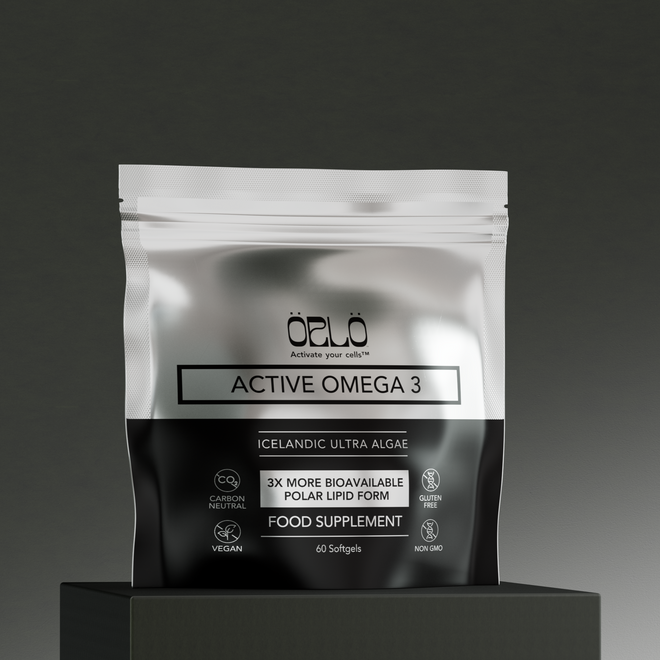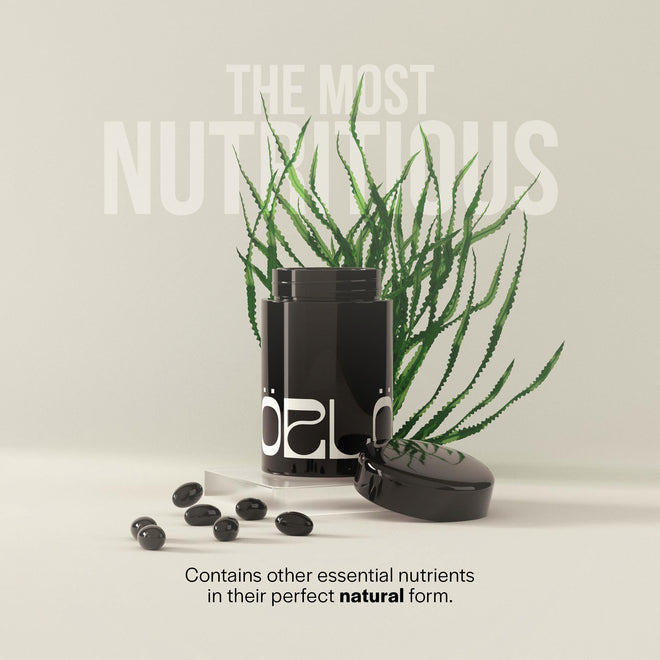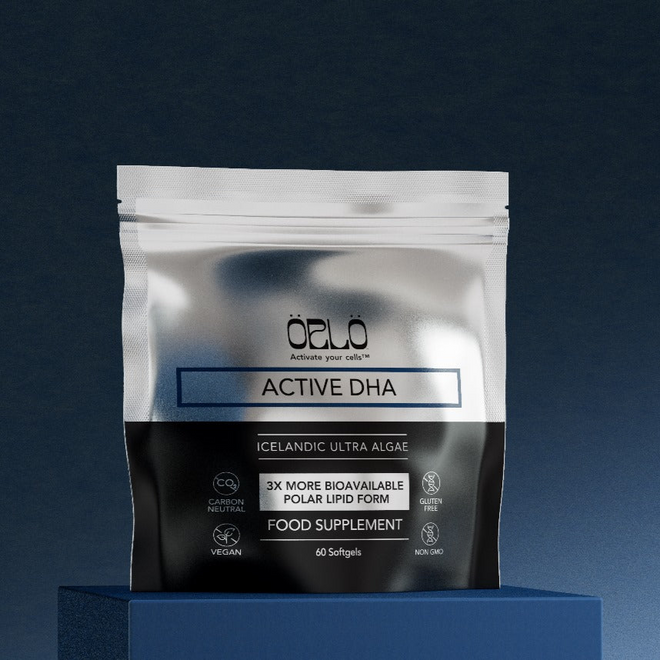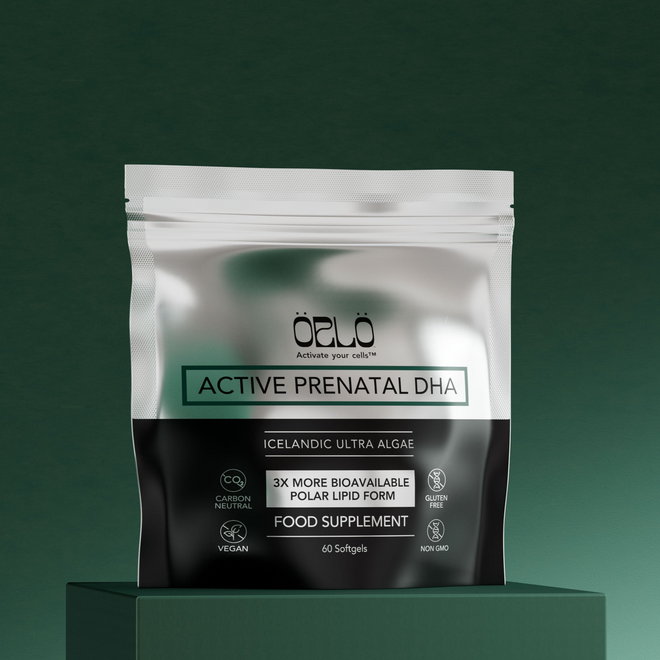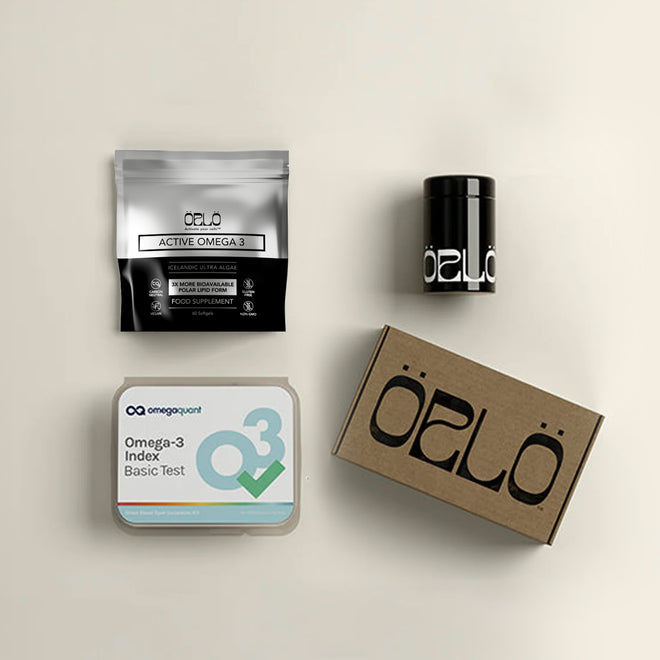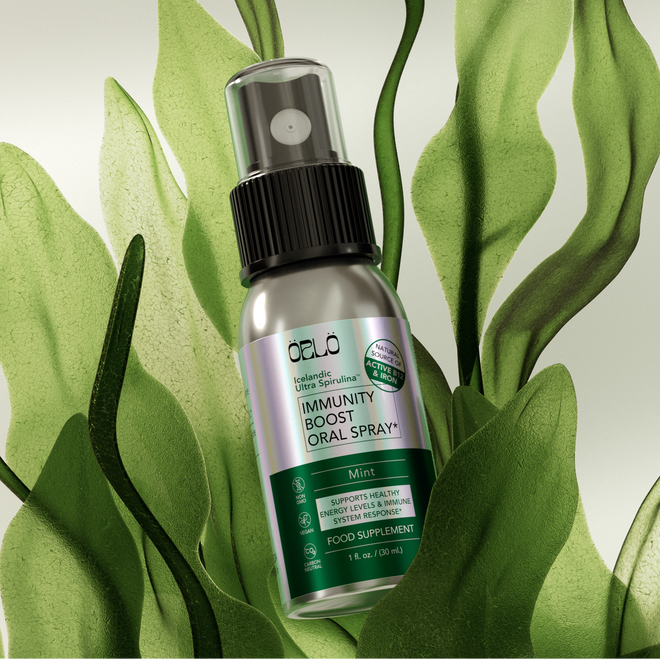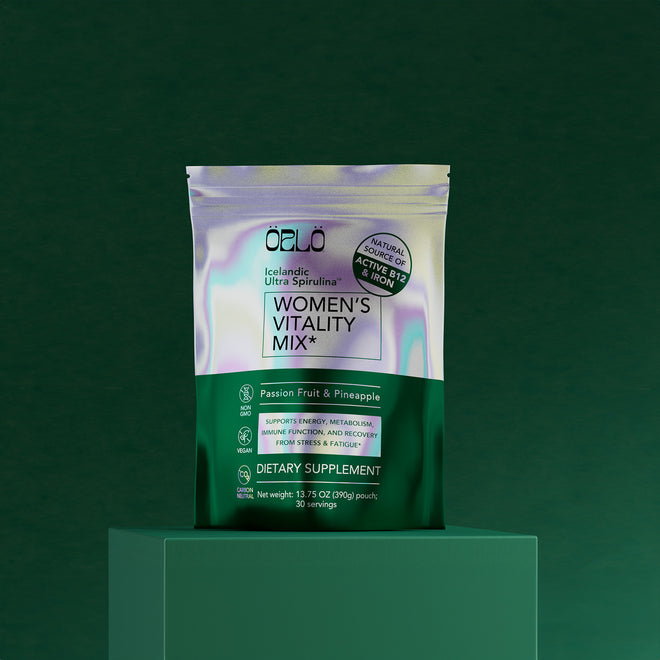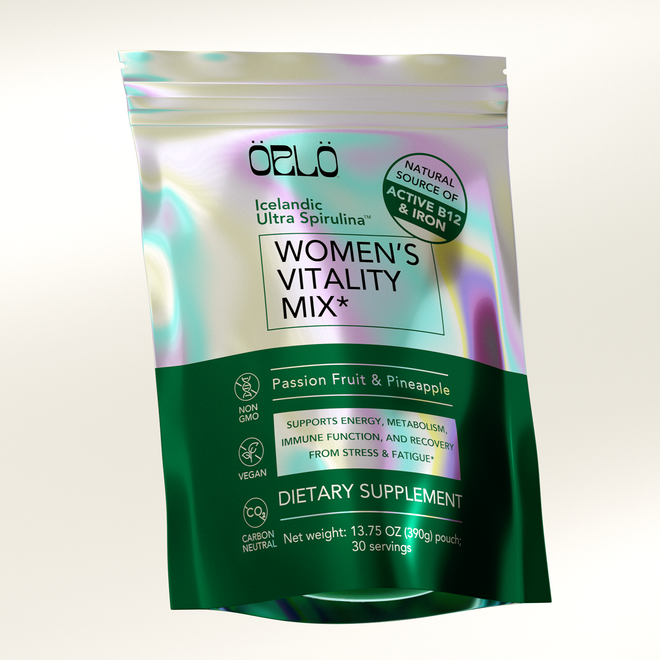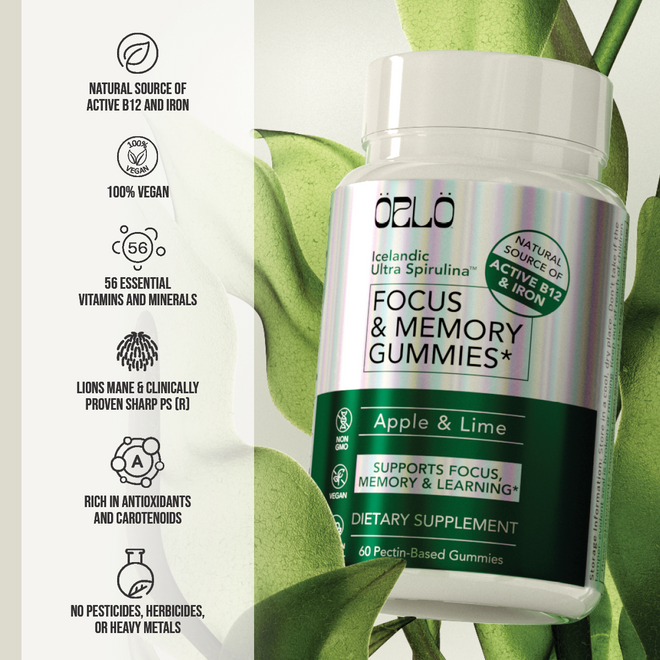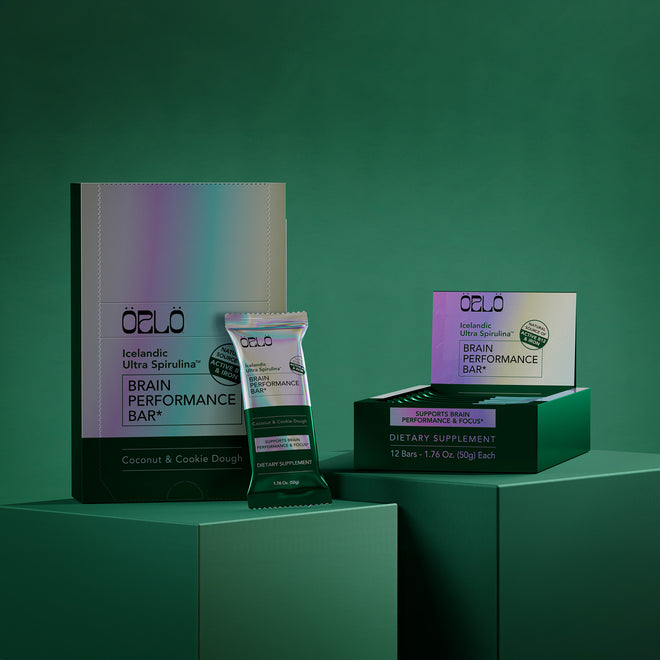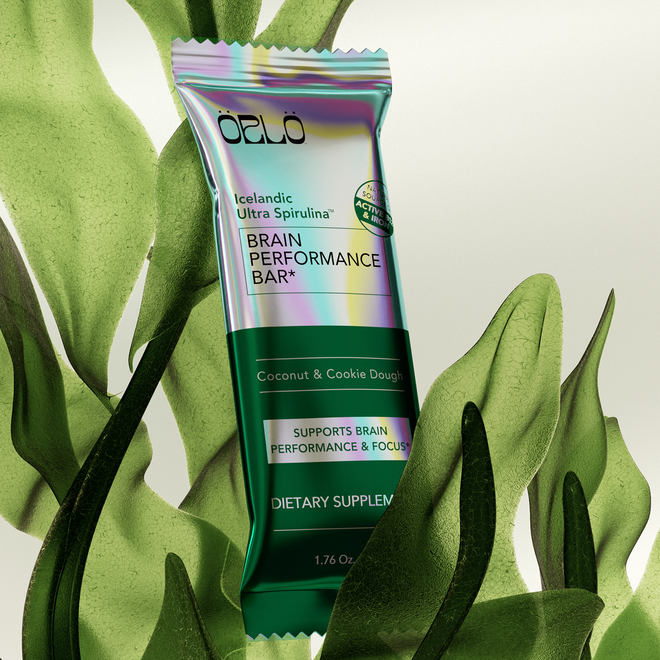Free shipping on purchases over $69
Benefits of Omega-3 from Algae: A Green Choice
Omega-3 fatty acids are a hot topic in health circles for good reason. Known for supporting heart health and promoting proper brain function, these essential fats play a crucial role in our overall well-being. While many people are aware of Omega-3’s benefits, they may not realize that the source of these fats can have a significant impact on both personal health and the environment. Enter algae—a sustainable powerhouse that offers a clean, plant-based source of Omega-3s without the environmental concerns tied to fish oil production.
Algae provides a golden opportunity to rethink how we consume Omega-3s. Traditional fish oil has long been a popular choice, but it comes with challenges such as overfishing and the risk of contaminants like heavy metals. Algae, on the other hand, offers a clean, sustainable alternative that minimizes ecological disturbance. Not to mention, it’s a perfect option for those following a plant-based diet. By shifting our focus from ocean to algae, we can support our health and the planet in one simple, effective step.
Why Choose Omega-3 from Algae?
Omega-3 fatty acids are essential nutrients our bodies need but can't produce on their own. They come in three main types: ALA, DHA, and EPA. While ALA is readily found in plant sources, DHA and EPA are primarily located in marine life, making them difficult for vegans to access. This is where algae steps in as a game changer. Unlike traditional sources like fish oil, algae naturally contains high levels of DHA and EPA, offering a direct way to get these nutrients without harming marine ecosystems.
Algae's biggest advantage is its environmental impact—or lack thereof. It grows quickly, requires minimal resources, and can be cultivated in a manner that enhances rather than depletes natural habitats. Here’s why algae shines as an Omega-3 source:
- Sustainability: Cultivating algae cuts down on overfishing and bycatch, helping maintain ocean biodiversity.
- Ecological footprint: Algae farming uses less water and land compared to other agricultural practices.
- Cleanliness: Algae is free from oceanic pollutants, ensuring pure Omega-3s without the worry of heavy metals.
Switching to algae-derived Omega-3 not only supports your health but also reflects a choice that considers the planet’s future. Embracing this sustainable source empowers you to make a positive impact while receiving all the health benefits you need.
Health Benefits of Omega-3 from Algae
Omega-3s from algae bring a host of health perks to the table. They stand out for their positive effects on cardiovascular wellness. These acids help maintain heart health, support normal cholesterol levels, and keep blood vessels functioning optimally. By adopting algae-sourced Omega-3s, you can fortify your heart naturally.
The benefits extend to your brain, too. Algae-sourced Omega-3s support cognitive health, aiding in concentration and focus. They also play a big role in preserving memory function, which is vital as we grow older. Added to this, the anti-inflammatory properties of these nutrients can ease joint discomfort, providing relief for those who deal with stiffness or pain. Overall, the fatty acids found in algae are a boon to numerous aspects of well-being.
Environmental Impact of Harvesting Algae
When it comes to sustainability, algae gets high marks for its eco-friendly nature. Algae farming requires fewer resources like water and land compared to other methods of producing Omega-3s. This makes it an attractive choice for supporting health without depleting the planet's natural assets.
- Resource Efficiency: Algae production uses significantly less water and land.
- Habitats Maintenance: By reducing the need for fishing, algae farming helps maintain aquatic biodiversity.
- Carbon Capture: Algae absorbs carbon dioxide during growth, making it a natural ally in efforts to lower carbon footprints.
Choosing algae-based Omega-3s aligns with sustainable practices, offering a green alternative that doesn't sacrifice health benefits.
How to Incorporate Omega-3 from Algae into Your Diet?
Incorporating Omega-3 from algae into your daily regimen doesn't have to be complicated. These supplements are available in various forms, making it easy to find one that fits your preferences. Whether it's a convenient capsule, a few drops from an oil, or even in fortified foods, you're covered.
Adding these to a plant-based diet is incredibly simple. Consider the following steps:
1. Capsules: Swallow a capsule with water for a quick boost.
2. Oils: Drizzle the oil over salads or mix into smoothies for a nutritious punch.
3. Fortified Foods: Look for food products fortified with algae oils as an easy way to include these nutrients in regular meals.
Thanks to its various forms, finding a method that suits your lifestyle has never been easier. Algae-based Omega-3s integrate seamlessly into vegan habits while ensuring you don't miss out on essential nutrients.
Reap the Benefits of Sustainable Omega-3
Taking steps to choose Omega-3 from algae means you’re not just doing right by your body, but also by the environment. These supplements support personal wellness with their heart-boosting and brain-enhancing properties while being a friend to Mother Nature. As awareness grows around sustainable practices, incorporating these algae-derived nutrients into your lifestyle can make a meaningful difference.
By embracing algae-based Omega-3s, you lay a foundation for proactive health care that respects our planet’s resources. It's an accessible and impactful choice—one that supports a greener, healthier future for us all.
By including Omega-3 from algae in your lifestyle, you make a thoughtful choice for your health and the planet. Ready to explore this clean, sustainable option for Omega-3 supplementation? Discover more about ORLO's products and how they align with your wellness goals by learning about our Omega-3 from algae supplements.
